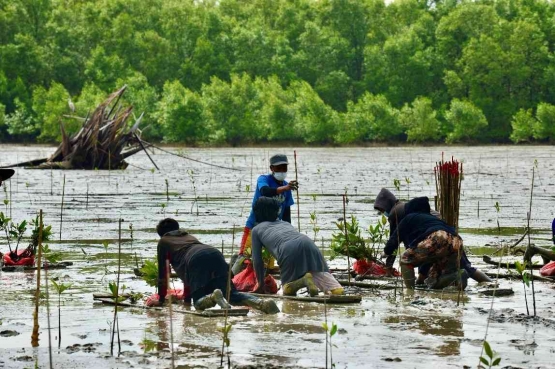Impact on biodiversity and ecosystems
Indonesia has immense biodiversity, including vast tropical rainforests, coral reefs, peat bogs, and other unique ecosystems. However, climate change poses serious threats to these fragile environments, and deforestation through agriculture, logging and infrastructure development is a problem by adding large amounts of carbon dioxide to the atmosphere and destroying critical habitats. is exacerbating
Deforestation not only reduces the country's natural carbon sink, but it is also responsible for the displacement and extinction of many plant and animal species, including the legendary orangutan. Coral bleaching caused by rising ocean temperatures is further threatening Indonesia's amazing marine biodiversity.
Economic Impact
Climate change is having a significant economic impact on Indonesia. As an archipelago, the country is vulnerable to rising sea levels, more frequent extreme weather events, and changes in rainfall patterns. These impacts can wreak havoc on important economic sectors.
1. Agriculture:
Indonesia's agricultural sector, a major source of employment and food security, faces risks from changing weather conditions. Declining crop yields, water scarcity and pest infestation can lead to reduced agricultural productivity, affecting farmers' livelihoods and food security. 
2. Fishing:
Indonesia is one of the world's largest fish producers. Climate change is impacting marine ecosystems, affecting fish habitats and depleting fish stocks. This can undermine fisheries and affect livelihoods and export earnings.
3. Coastal tourism:
Indonesia's pristine beaches and coral reefs attract millions of tourists each year. Rising sea levels, coral bleaching and coastal erosion pose threats to these ecosystems, affecting local communities that rely on tourism revenues and industry.











